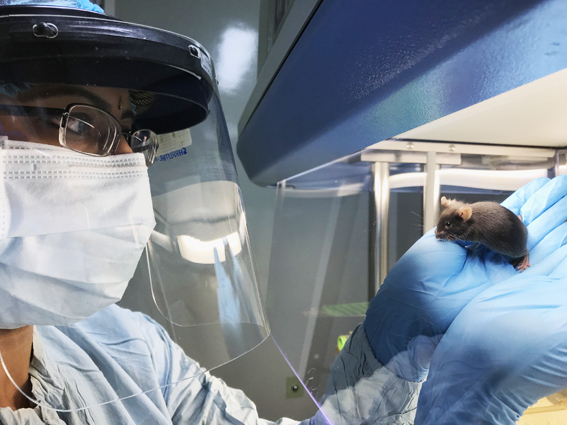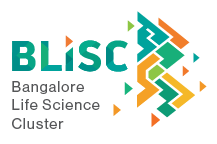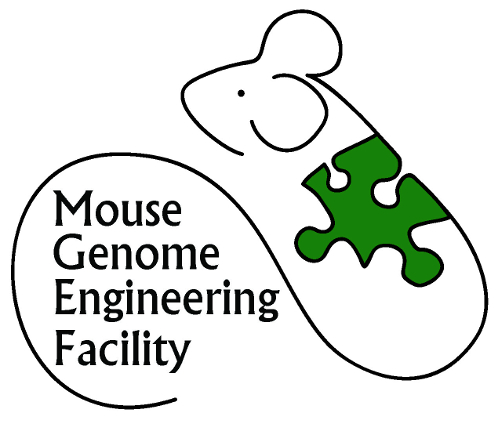________________
>> Check Out our new ACRC /MGEF brochure outlining our activites and services.
[ The ACRC-MGEF services & information booklet ].
>>> ACE2 mouse models available for your COVID-19 Research needs
------------------------------------------------------------------------

ACRC is part of the Bangalore Life Science Cluster (BLiSC) based on the dynamic NCBS/inStem GKVK campus, Bangalore - India.
The ACRC provides services and resources for investigators to accomplish animal research objectives. This includes, but is not limited to, the acquisition and housing of laboratory animals, training researchers regarding proper animal care and use, providing state-of-the art facilities, and monitoring the safety of all personnel with laboratory animal contact. Importantly, the ACRC is dedicated to ensuring the humane and ethical usage of animals for research pursuits by strictly complying with the CPCSEA and in-house animal care principles, rules, regulations and guidelines.
The ACRC operates with substantial support from the Department of Biotechnology (DBT) through a grant to create a National Mouse Research Resource (NaMoR) - (grant# BT/PR5981/MED/31/181/2012;2013-2016;2018 & 102/IFD/SAN/5003/2017-2018.). This grant is focused on enabling the NCBS/inStem/C-CAMP biocluster to build a unique shared state-of-the-art SPF mouse facility and a rat facility where the needs of researchers within our campus as well as nationwide are addressed. Moreover, under the auspices of the NaMoR grant the ACRC has three major aims:
1. Greatly enhance the ability of Indian biologists to use the most appropriate and modern technologies to address questions to the depth expected for new insights and high-impact publications.
2. Create a resource center that can serve as the nodal point for international collaborative efforts to generate mouse models of human disease.
3. Provide education and training to a new generation of scientists as well as facility managers so as to enhance the capabilities of existing smaller mouse facilities nationwide.
All of these collaborative efforts will be accomplished in an inclusive, professionally-managed model for a national facility to serve the maximum of researchers while maintaining the highest standards of quality.
The ACRC is dedicated to provide quality (healthy and non-stressed) laboratory animals for research and 24X7 caring of animals. All projects run in the ACRC are cleared by the institutional animal ethics committee.
The ACRC currently houses four species of laboratory animals:
Mice (around 280 strains which include inbred, out bred and genetically engineered lines), Rats (out bred stocks like Wistar, Sprague Dawley, Long Evans and several transgenic rat strains), Xenopus laevis and Zebra fish. All the Rodent animal rooms have a controlled environment with 20-22'c temperature, 50-60 relative humidity, 0.3 micron HEPA filtered air supply at 15-20 ACPH and 14/10 light/dark cycle maintained. All mouse colonies are housed in Individually Ventilated Caging (IVC) systems. Mice and Rat Colonies are fed with SAFE maintenance irradiated Diet (14% protein ; 3.9% Fat) and provided with RO/chlorinated water. The ACRC maintains most mouse rooms under Specific Pathogen Free (SPF) conditions. Health monitoring of the SPF animal colonies is done every quarter. Depending on the requirements of the approved research protocol, the ACRC imports new strains of animals from commercial suppliers and/or collaborators from abroad. The ACRC handles breeding, maintenance and supply of healthy laboratory animals to support the ongoing research at the center.
In addition, the ACRC provides orientation and training to all authorized animal facility users to assure high standards of humane, ethical and responsible use of animals in their research. It also provides veterinary assistance including anaesthesia of animals, surgical procedures on animals, peri-operative care of animals, collection of biological samples, administration of medications and treatments, and record keeping as per Govt. of India regulations.
Within the ACRC, The Mouse Genome Engineering Facility (MGEF) provides services and training to generate genetically modified mouse models, and access to cryopreservation and in vitro fertilisation technologies.






